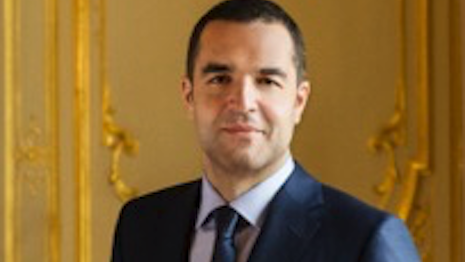- About
- Subscribe Now
- New York,
May 3, 2018

 Olivier Reza is CEO of Eleven James
Olivier Reza is CEO of Eleven James
By Olivier Reza
Luxury is elegant. It is graceful. It is timeless. At its broadest, it is a wide collection of the world’s finest things. At its narrowest, it is a reflection of detailed intimacy.
And it is also way behind its time.
Class of its own
The future of luxury is not being written by those who are developing more ornate or more technically complex pieces. It is being shaped by those who are fully embracing the sharing economy and other innovative modes of consumption, recognizing that changes in consumer behavior is going to drastically change the avenues of access.
This concept is not unique to luxury. It happened when the automotive industry embraced leasing.
At first people were reluctant to embrace the then-novel mode of consumption. The comfort of ownership, even if it was through the mechanism of credit, felt more natural because it had always been the default.
Eventually, people started to challenge their assumptions about ownership and it became quickly apparent that not only did leasing provide price benefits, but it also increased the inherent value of cars. The possibility of more regular upgrades meant people would select cars based on different criteria, selecting, for example, on aesthetics instead of mere function alone.
Now, that concept of experience over ownership is being explored in every industry.
Driven by the different consumption behavior introduced by the sharing economy, which is expected to surge to $335 billion by 2025, consumers are less swayed by the traditional tactic of promoting exclusivity and more influenced by those who assume a more digital, personalized posture.
It is easy to see how digital channels are causing a recalibration across luxury brands. Even a general understanding of the recent momentum of Airbnb or Uber defines why.
Some brands will adapt and survive, others will go through hard times until they finally catch up. But what is casually overlooked is the amplification effect of technology on luxury: it is not just changing how people are consuming – challenging the definition of what luxury means.
Leasing allows people to enjoy a Mercedes S-Class every two years. The new luxury experience is going to allow people to explore, discover, and define what beauty means to them on their terms.
Recognize post-ownership paradigm shift
Conditioned by other products in the sharing economy, smart brands recognize that consumers no longer feel like they need to bear the cost burden or lifetime commitment to luxury goods. They instead select models that create personalized, meaningful experiences that do not mandate ownership or commitment.
Luxury Retreats is a prime example of a company making experiential luxury available to more people by opening up opulent properties to the average traveler.
Other ground-breaking businesses such as Net-A-Porter and Rent the Runway are changing luxury’s inherent value by allowing customers to accessorize and dress in high-end designer fashion. Similar online platforms are doing the same for watches and jewelry.
As these brands adapt to fit the modern digital shopping experience, it is clear that making luxury more available does not lessen its value. In fact, it is quite the opposite.
Luxury brands observe that consumers prefer to enjoy spontaneous and fun experiences without the pressures of long-term ownership.
Catering to the sampling economy
For younger consumers, sampling various goods and services has become more exciting and affordable than owning.
Millennials’ view on luxury is that it should be seamlessly tried and then swapped out for a new experience.
One of the spunky pioneers of the sharing economy is Gamefly, a subscription-based service that allows gamers to enjoy a plethora of video games without having to pay up to $100 for a game they quickly conquer.
Gamefly cleverly forecasted people’s desires to sample many games versus having to pay big bucks for a single gaming experience.
Automakers are also part of a growing list of luxury companies adopting a subscription model.
Last year, Porsche unveiled Porsche Passport, a service that lets any driver experience their iconic vehicles, removing the hassle of ownership by combining mileage, insurance, maintenance and delivery into one easy-on-the-wallet monthly fee.
Data-driven personalization and brand collaboration
Curated experiences are galvanizing the future of luxury retail.
Allison Samek, CEO of legendary retailer Fred Segal, said, "Now more than ever, the luxury consumer is looking for an experience. They don’t want the same shopping experience they’ve seen before.”
As luxury subscription platforms continue gathering data about their customers’ shopping and product preferences, they will be able to better customize and curate their guests’ experiences the next time around.
Along with tailoring to individual tastes and preferences, luxury brands are finding opportunities for creative industry synergy.
For example, NetJets, a private aviation company that allows owners to buy hours on the plane they would like to fly as opposed to purchasing the plane itself, recently partnered with luxe hotel brand Four Seasons to give international travelers a seamless and personalized luxury experience.
THE LUXURY BUSINESS is headed in the right direction, as almost two-thirds of companies in this sphere grew last year.
As formerly exclusive brands redefine the notions of ownership, it is key that they use data-driven insights to create personalized shopping experiences to stay relevant and profitable in the next-gen sampling economy.
Olivier Reza is CEO of Eleven James, New York. Reach him at oreza@elevenjames.com.
Share your thoughts. Click here